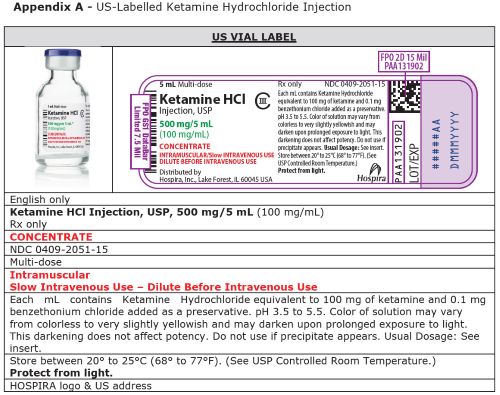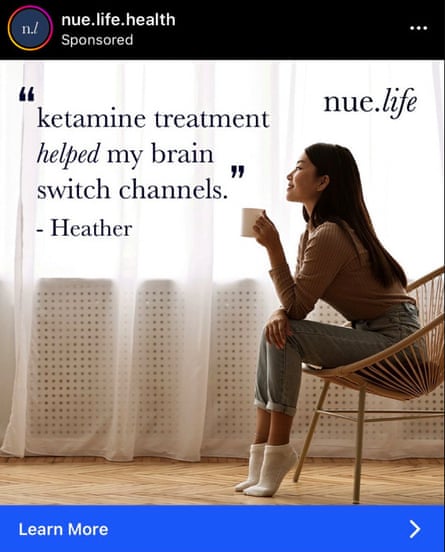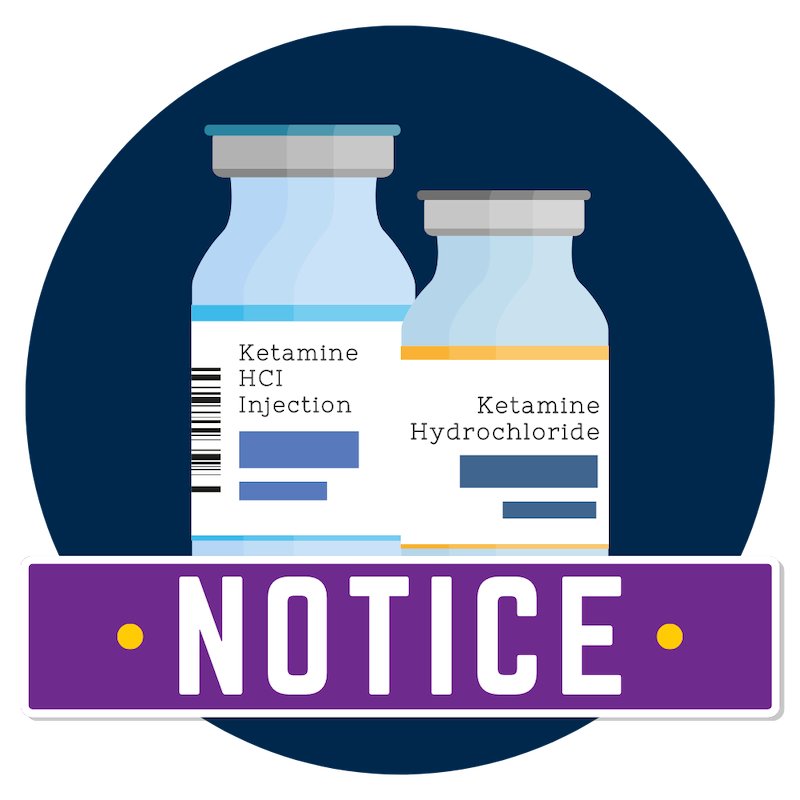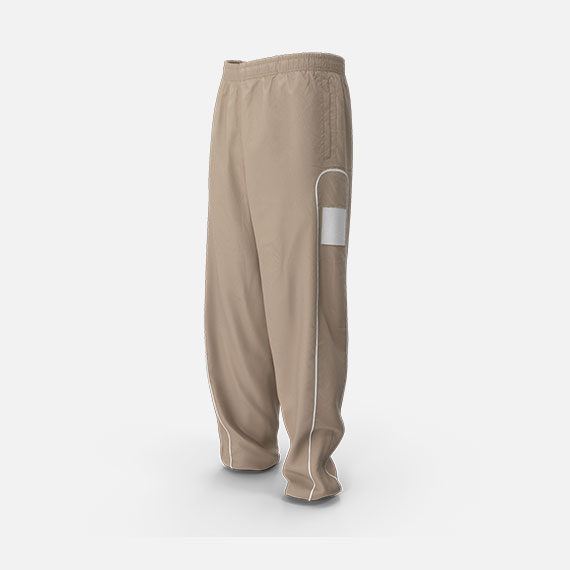
The best place to buy ketamine hcl injection online
In recent years, ketamine has gained significant attention for its potential in treating individuals with treatment resistant depression. As research continues to show promising results, more and more patients are turning to this innovative treatment option to manage their symptoms and improve their quality of life.
In a recent study conducted in Edmonton, Alberta, researchers have highlighted the positive effects of ketamine in treating depression and how it can be effectively integrated into a community ketamine program. This updated review of literature sheds light on the benefits of ketamine for those struggling with treatment resistant depression and provides practical applications for healthcare providers looking to incorporate this treatment into their practice.
One of the key advantages of ketamine is its rapid onset of action, which can provide immediate relief for patients who have not responded to other traditional antidepressants. This makes it an appealing option for individuals who are in urgent need of relief from their symptoms. Additionally, ketamine has been shown to have a long-lasting effect, with many patients experiencing significant improvements in their symptoms for an extended period of time.
If you are considering ketamine as a treatment option for depression, it is important to ensure that you are obtaining high-quality ketamine from a reputable source. You can buy ketamine-hcl-injection online from trusted suppliers who provide safe and reliable products for medical use. Ketamine-hcl-injection for sale online near you offers convenience and accessibility for patients seeking this innovative treatment option.
As the stigma surrounding mental health continues to decrease, it is crucial for healthcare providers to explore alternative treatment options like ketamine to effectively address the needs of patients with treatment resistant depression. By staying informed on the latest research and practical applications of ketamine, providers can offer more personalized and effective care to their patients.
Overall, the integration of ketamine into a community ketamine program in Edmonton, Alberta is a testament to the growing potential of this treatment option in revolutionizing depression care. With ongoing research and advancements in the field, ketamine continues to offer hope and healing to those struggling with mental health challenges.
Importation of US-Labelled Ketamine Hydrochloride for Injection due to Potential Shortage of Canadian-labelled Ketamine
Starting date:May 6, 2020Posting date:May 6, 2020Type of communication:Dear Healthcare Professional LetterSubcategory:DrugsSource of recall:Health CanadaIssue:Labelling and Packaging, Product Safety, Supply, Important Safety InformationAudience:Healthcare Professionals, HospitalsIdentification number:RA-72987
Audience
Healthcare professionals including pharmacists, intensivists, anesthesiologists, critical care physicians, emergency physicians, dental surgeons and those involved with administering anesthesia or intubating patients.
Key messages
- There is an unprecedented demand for ketamine hydrochloride injection in Canada as a result of the COVID-19 pandemic.
- Ketamine hydrochloride is a rapid-acting, nonbarbiturate general anesthetic for intravenous and intramuscular administration. Given the medical necessity of ketamine in Canada, Health Canada has added US-labelled Ketamine Hydrochloride 500 mg/5 mL (100 mg/mL concentration) to the List of Drugs for Exceptional Importation and Sale.
- Special attention is required to ensure correct patient dosing. US-labelled Ketamine Hydrochloride Injection (100 mg/mL) contains 10 times or 2 times higher concentration compared to Canadian-labelled ketamine hydrochloride injection products (10 mg/mL or 50 mg/mL, respectively).
- Healthcare professionals are advised that:
- Dosing calculations need to be modified to reflect the higher ketamine concentration (100 mg/mL)
- This new concentration should be added to drug databases and other relevant systems as required
- The 100 mg/mL concentration of ketamine should not be injected intravenously without proper dilution. It is recommended that the drug be diluted with an equal volume of either Sterile Water for Injection, USP, Normal Saline, or 5% Dextrose in Water, to make its concentration to 50 mg/mL.
- Healthcare professionals should visit Pfizer’s web site to access the US Prescribing Information, including additional dilution instructions.
Issue
There is an unprecedented demand for ketamine hydrochloride injection, in Canada as a result of the COVID-19 pandemic. Given the medical necessity of this product, Health Canada has added US-labelled Ketamine Hydrochloride 500 mg/5 mL (100 mg/mL concentration) in a 5 mL vial to the List of Drugs for Exceptional Importation and Sale in accordance with the Interim Order.
Ketamine hydrochloride is a rapid-acting, nonbarbiturate general anesthetic and the 100 mg/mL concentration is not currently authorized for use in Canada; however, Health Canada has permitted the exceptional importation and sale of this US-labelled product to mitigate shortages in Canada.
Products affected
Ketamine Hydrochloride Injection, USP (US Labelled)
500 mg/5 mL (100 mg/mL) in a 5 mL fliptop multi-dose vial format
Lot 10325DD
Background information
Indications and usage for Ketamine Hydrochloride Injection, USP, 500 mg/mL (100 mg/mL) are as follows:
- Ketamine hydrochloride injection is indicated as the sole anesthetic agent for diagnostic and surgical procedures that do not require skeletal muscle relaxation.
- Ketamine hydrochloride injection is best suited for short procedures, but it can be used, with additional doses, for longer procedures.
- Ketamine hydrochloride injection is indicated for the induction of anesthesia prior to the administration of other general anesthetic agents.
- Ketamine hydrochloride injection is indicated to supplement low-potency agents, such as nitrous oxide.
For information on appropriate use including dosage, dilution and administration, please refer to Ketamine Hydrochloride Injection, US Prescribing Information.
Who is affected
Information for healthcare professionals
In Canada, ketamine hydrochloride injection products are approved at concentrations of 10 mg/mL or 50 mg/mL. The Ketamine Hydrochloride imported from the US is a higher concentration, 500 mg/5 mL (100 mg/mL), which represents 10 times or 2 times higher concentration respectively compared to the concentration of Canadian marketed ketamine injectable products. Ketamine Hydrochloride Injection, USP, imported from the US should not be injected intravenously without proper dilution. The difference in the concentration of the foreign ketamine product may increase the risk of the wrong dose being administered and lead to overdoses.
The US-labelled ketamine hydrochloride injection is a higher concentration than the currently marketed ketamine products in Canada therefore:
- Dosing calculations need to be modified to reflect the higher ketamine concentration (100 mg/mL)
- This new concentration should be added to drug databases and other relevant systems as required
- It is recommended that the 100 mg/mL US product be diluted with an equal volume of either Sterile Water for Injection, USP, Normal Saline, or 5% Dextrose in Water, to make it a 50 mg/mL concentration. Refer to the US Prescribing Information for additional dilution instructions. Once diluted, this drug product can be used as other Ketamine Hydrochloride products on the Canadian market. For complete product information, please refer to Ketamine Hydrochloride Injection Prescribing Information.
- Institutions should confirm that barcode systems provide correct information when the product is scanned. The barcode may not be appropriately recognized by scanning systems used in Canada.
- Institutions should take extra care in the preparation and administration of this product.
Please see Appendix A for images of US-Labelled Ketamine Hydrochloride Injection.
Action taken by Health Canada
The Minister of Health signed the Interim Order Respecting Drugs, Medical Devices and Foods for a Special Dietary Purpose in relation to COVID-19. Drugs included on the List of Drugs for Exceptional Importation and Sale referenced in the Interim Order are eligible for the exceptional importation and sale provisions provided for in the Interim Order. This communication update will be further distributed through the MedEffect⢠e-Notice email notification system, as well as through social media channels, including LinkedIn and Twitter.
Report health or safety concerns
Managing marketed health product-related side effects depends on healthcare professionals and consumers reporting them. Any case of serious or unexpected side effects in patients receiving Ketamine Hydrochloride Injection should be reported to Pfizer Canada ULC or Health Canada.
Large network of clinics offering ketamine for depression shuts down

One of the largest operators of ketamine clinics in the country abruptly closed its facilities this week, leaving patients in the dark and out of treatment for depression and other chronic conditions.
Ketamine Wellness Centers spanning nine states were shuttered, leaving laid-off employees and patients with more questions than answers. Interest in ketamine to treat depression and other conditions has grown in recent years. A short-lived anesthetic turned party drug, it’s now being studied for its benefits to those with psychiatric disorders that don’t respond to other treatments. And there is a push by some to expand its use to treat other conditions, such as substance use disorders.
Advertisement
The centers were run by Delic Corp., a subsidiary of the publicly held Canadian company Delic Holdings Corp. Delic calls itself the “leading psychedelic wellness platform” in the U.S., and has hinged its growth on the potential legalization of MDMA and psilocybin treatments. The company’s CEO since January 2021 is Matt Stang, the former chief revenue officer of High Times magazine, which pushed for the legalization of cannabis.
Delic Holdings also runs the psychedelic and cannabis-focused Delic Labs out of Vancouver, Canada, and in 2021 acquired Ketamine Wellness Centers, which ran clinics in states such as Arizona and Washington. Delic is characterized as a media, e-commerce, events, and clinic company. The company’s website touted itself as running the “largest profitable network of clinics” in the country.
Related: Telehealth startups prescribing ketamine at home are stirring concern
As of Wednesday afternoon, the Ketamine Wellness Centers website displayed a banner on the homepage: “Delic announces suspension of Ketamine Wellness Centers Operations,” with an email and phone number for patients to obtain their medical records. No other information was immediately available about the closure of the 12-year-old company
Ketamine clinics have emerged across the US. They’re already going bust
This article is more than 2 years old
The industry touting the drug as an antidepressant has grown too quickly, experts say, leaving patients at risk
Mattha BusbyTue 11 Apr 2023 14.00 BSTShare
America is in a ketamine boom. The drug, which has rapid-acting antidepressant properties and somewhat psychedelic effects, is still taken recreationally by club kids and students. But in the past decade, many thousands of patients have undergone legal therapy under its influence and hundreds of ketamine clinics have sprung up across major cities. There are 12 clinics in Manhattan alone.
But the burgeoning industry, like the wider emerging psychedelic industry, is experiencing growing pains. One of the largest startup clinic chains offering ketamine treatment has just gone bust, another is in dire straits, and others face uncertainty. Why are so many ketamine clinics struggling, even as demand is increasing?
Most believe it’s because the industry expanded too quickly. Groups of clinics fought for a slice of the estimated $3bn pie (that’s how much the industry is expected generate in revenue between this year and 2029). But with millions invested by private equity, investor patience for some clinics is running out.
That’s something Hannah, a former US soldier, discovered the hard way. She suffers from extreme fatigue, brain fog, and anxiety. After years of ineffective treatments, she finally began making progress with her mental health after receiving ketamine intravenously at a specialist clinic earlier this year.
But when she arrived for her third treatment at a Ketamine Wellness Clinics (KWC) facility in Minnesota on 10 March, the center was mysteriously locked without explanation. “I was confused,” she says. “I didn’t know what had happened until I saw the news on Reddit.”

buy ketamine hcl injection online
She is just one of many left in the lurch by the sudden closure of KWC, formerly one of the largest ketamine clinic chains in the US, operating 13 sites out of nine states. “I was devastated and I’m still very frustrated,” she adds, with the shuttering coming days after its owner warned of “ongoing capital market challenges”. (The Guardian was unable to reach KWC after several attempts.)
Hannah is now on a waiting list at another provider that is covered through Veterans Affairs (VA) insurance and she will not restart treatment until the summer. “KWC has not responded to my requests for my records,” she says. “It’s devastating: I finally had hope for my mental health but now it feels like my life is on hold.”
KWC is not the only company to recently have left their patients scrambling to continue their treatments elsewhere. Its fellow market leader Field Trip, the first psychedelic company to list on Nasdaq’s top tier, is this month to close four of its US centers, from Chicago to San Diego, amid restructuring efforts to stay afloat. It is also seeking a new owner despite raising almost $100m in funding before sustaining serious losses. It “has always been a cash-flow-negative business”, a recent court document states.

“The psychedelic bubble was wildly inflated,” tweeted Benjamin Ramm, author of the forthcoming book High Definition: A Vision for our Psychedelic Future. “Field Trip Health planned 75 centers across the US by 2024! Their rapid scaling was unsustainable and shows the limitations of startup zeal. From the peak of inflated expectations, we have collapsed into the trough of disillusionment.”
Actify Neurotherapies, which was also backed by private equity, abruptly closed all of its dozen clinics in 2020. Like KWC, it practically disappeared overnight.
Some analysts believe that as many as seven in 10 psychedelic companies face serious challenges due to a banking crisis, which means that capital is scarce. One has warned of an impending “bloodbath”.
“It’s a wild, wild west,” says Lauren Taus, a ketamine-assisted psychotherapist who has a private practice. “There has been a mad dash to commercialize led by businesspeople who have seen a money-making opportunity but have not understood what is necessary to make it work.”
buy ketamine hcl injection for sale online near me
Premature expansion, delays to health insurance coverage payments and investor impatience have been key to these closures. But some experts also point to the even swifter rise of telehealth startups that were able to begin sending cheap prescriptions of ketamine to people’s homes without an in-person assessment.
Companies offering remote therapy, such as Better U and Wondermed, provide much cheaper direct-to-door deliveries of ketamine in therapy packs – one provider offers 30 daily doses for $129 a month. They’re accompanied by Zoom calls with therapists, playlists, guided meditations, educational information and eyeshades, meaning people do not even have to leave their homes. In a choice between expensive in-person ketamine assisted therapy, and cheap ketamine candy sent straight to your home, many unsurprisingly chose the latter.
Pandemic measures in the US and elsewhere sanctioned remote prescriptions of controlled drugs, though these may soon end.
In the meantime, telehealth operators aggressively market to vulnerable potential clients on social media with targeted ads and repeatedly follow up with anyone expressing interest. “They are glorified drug dealers,” Taus says. The services offered by providers vary greatly, but some outfits do not rigorously assess patients for medical need, and then fail to provide adequate integration therapy following breakthrough psychedelic experiences. “They are not paying attention to what’s actually going on in people’s psyches. People are getting prescriptions to party with,” says Taus.

In the process of reporting this story, I posted on the TherapeuticKetamine message board, which has 28,000 members. Shortly afterwards I was offered an integrated treatment package which included 20 doses of ketamine either through slow-releasing lozenges, often emblazoned with company logos, or a bottle of a nasal spray, which is easier to misuse, for $495 by an organization on Reddit. It apologized for messaging “out of the blue” when I challenged it.
The tumultuous developments in the unregulated ketamine industry could serve as a cautionary tale for advocates of medicinal drug legalization, with MDMA and psilocybin mushrooms likely to be approved by regulators for medical use within the next couple of years. Some fear that an emerging “corporadelic” and intensely profit-seeking clinical culture could dash their hopes of a psychedelic healing utopia.
“The majority of ketamine clinics do not provide adjunct psychotherapy,” claims Natalie Ginsberg, global impact officer at the Multidisciplinary Association for Psychedelic Studies (Maps), a research and advocacy group. “A lot of these companies are forced by standard business practices to maximize profit for their shareholders, which inevitably leads to decisions that do not prioritize patient outcomes and healing.”
A lack of support could become particularly fraught during a strong ketamine trip because of the risk the lone user is sent into a potentially terrifying “K hole” where one loses all awareness and may feel as if they are falling down steep drops.
“I understand it can be really helpful for people, and the most important part is that [at home treatment] it’s much more affordable, but doing it alone at home requires a much higher level of support than is currently being provided on the whole,” adds Ginsberg. One company reportedly outsourced aftercare to a smart phone app which doled out generic responses to crisis-stricken patients’ questions and concerns.
Ginsberg says clinics still represent a viable business. “I live in LA and there are ketamine clinics everywhere,” Ginsberg says. “Telehealth is not killing the clinic business but many people will opt for both cheaper and more convenient ways of doing this work.”
For many, it’s not a choice. They cannot afford to go to a clinic and pay hundreds of dollars per intravenous session – of which at least half a dozen are usually required. “A lot of people see ketamine clinics as this great business to go into to make huge margins, because ketamine itself is so cheap,” says Ben Spielberg, the founding CEO of Bespoke Treatment, which offers ketamine infusions.
“But it really couldn’t be further from the truth: the cruel absurdity is that the people who benefit the most from ketamine therapies can rarely afford it. Many of them are on disability due to their mental health conditions and $400-$600 per infusion is an insurmountable obstacle.
“Working with insurance companies is excruciatingly difficult, and requires additional layers of oversight, complexity, and staffing,” adds Spielberg. “It increases expenses on the clinic side, slows cash flow, and reduces income.”
Some insurers are starting to cover ketamine therapy, but things are likely to only get more competitive for existing clinics once Oregon begins offering legal guided therapy with psilocybin mushrooms in the second half of 2023 and Colorado follows suit after that. People seeking therapeutic psychedelic trips will have an increasing number of options.
“Ketamine works really well for a lot of patients, but the ketamine industry doesn’t,” Spielberg laments. “We’ll keep seeing more ketamine clinics pop up as people think they can make a quick buck; and when macroeconomic conditions shift, we’ll see consolidation, reckless scaling, and eventual bankruptcies when conditions swing back.”
Ordering Ketamine for Use in Animals

Recently, shortages of the anesthetic drug Ketamine have been reported in human medicine. Thus far, supplies manufactured specifically for use in veterinary animal care have NOT been impacted.
As a result of shortages in the human drug, the Michigan Medicine B2 Pharmacy is currently limiting the distribution of Ketamine to animal users. Study Teams needing to order Ketamine during this time are encouraged to reach out to the U-M’s approved vendor, MWI Animal Health, to purchase supplies.
To order through MWI:
- Request a username and password on the MWI website (mwiah.com) to view products, availability, and pricing.
- Contact the ULAM Business Office at ulam-questions@umich.edu or (734) 764-0277 to obtain U-M’s account number prior to placing an order.
- Labs must have an active DEA license and use their individual DEA license number when placing orders.
Questions?
- If you have difficulty obtaining a specific drug needed to treat the animals in your research program(s), please contact your ULAM Faculty Veterinarian to consult on alternative medication options. Our veterinary faculty can work with your lab to determine acceptable alternative medications and provide veterinary approval for use of these drugs.










